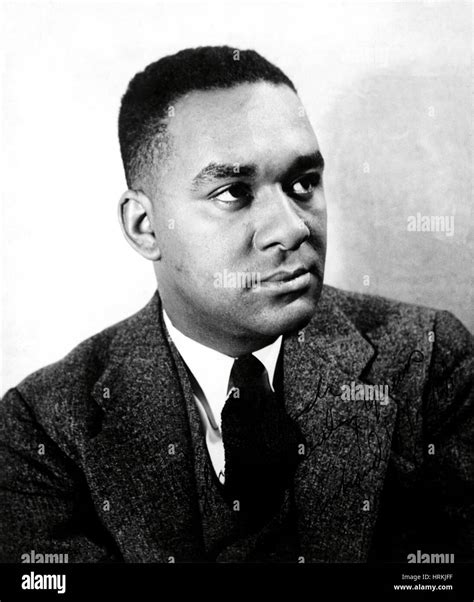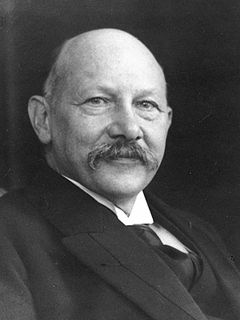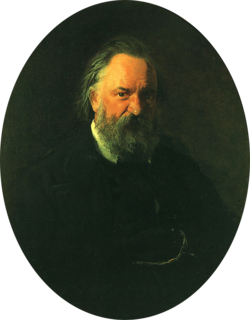Top 151 Disappearance Quotes & Sayings - Page 3
Explore popular Disappearance quotes.
Last updated on April 20, 2025.
The happy ending of the fairy tale, the myth, and the divine comedy of the soul, is to be read, not as a contradiction, but as a transcendence of the universal tragedy of man. The objective world remains what it was, but, because of a shift of emphasis within the subject, is beheld as though transformed. Where formerly life and death contended, now enduring being is made manifest-as indifferent to the accidents of time as water boiling in a pot is to the destiny of a bubble, or as the cosmos to the appearance and disappearance of a galaxy of stars.
The daily disappearance and the subsequent rise of the sun appeared to many of the ancients as a true resurrection; thus, while the east came to be regarded as the source of light and warmth, happiness and glory, the west was associated with darkness and chill, decay and death. This led to the custom of burying the dead so as to face the east when they rose again, and of building temples and shrines with an opening toward the east. To effect this, Vitruvius, two thousand years ago, gave precise rules, which are still followed by Christian architects.
Although it has been fashionable to deny it, anti-slavery doctrines began to appear in Christian theology soon after the decline of Rome and were accompanied by the eventual disappearance of slavery in all but the fringes of Christian Europe. When Europeans subsequently instituted slavery in the New World, they did so over strenuous papal opposition, a fact that was conveniently 'lost' from history until recently. Finally, the abolition of New World slavery was initiated and achieved by Christian activists.
Gifford Pinchot points out that in colonial and pioneer days the forest was a foe and an obstacle to the settler. It had to be cleared away... But [now] as a nation we have not yet come to have a proper respect for the forest and to regard it as an indispensable part of our resources-one which is easily destroyed but difficult to replace; one which confers great benefits while it endures, but whose disappearance is accompanied by a train of evil consequences not readily foreseen and positively irreparable.
I regret that there aren't more short stories in other magazines. But in a certain way, I think the disappearance of the short-story template from everyone's head can be freeing. Partly because there's no mass market for stories, the form is up for grabs. It can be many, many things. So the anthology is very much intended for students, but I think we're all in the position of writing students now. Very few people are going around with a day-to-day engagement with the short story.
Depression is about anger, it's about anxiety, it's about character and heredity. But it is also about something that is in its way quite unique. It is the illness of identity, it is the illness of those who do not know where they fit, who lose faith in the myths they have so painstakingly created for themselves. It is a plague - especially if you add in its various forms of expression, like alcoholism, anorexia, bulimia, drug addiction, compulsive behavior of one kind or another. They're all the same things: attempts to avoid disappearance, or nothingness, or chaos.
The Germans have an inhuman way of cutting up their verbs. Now a verb has a hard time enough of it in this world when it's all together. It's downright inhuman to split it up. But that's just what those Germans do. They take part of a verb and put it down here, like a stake, and they take the other part of it and put it away over yonder like another stake, and between these two limits they just shovel in German. from "Disappearance of Literature
The movements of nature are in a never ending circle. The animal species which has once been put into a train of motion, is still probably moving in that train. For if one link in nature's chain might be lost, another and another might be lost, till this whole system of things should evanish by piece-meal; a conclusion not warranted by the local disappearance of one or two species of animals, and opposed by the thousands and thousands of instances of the renovating power constantly exercised by nature for the reproduction of all her subjects, animal, vegetable, and mineral.
A few years ago, they [Neandertals] were thought to be ancestral to anatomically modern humans, but now we know that modern humans appeared at least 100,000 years ago, much before the disappearance of the Neandertals. Moreover, in caves in the Middle East, fossils of modern humans have been found dated 120,000-100,000 years ago, as well as Neandertals dated at 60,000 and 70,000 years ago, followed again by modern humans dated at 40,000 years ago. It is unclear whether the two forms repeatedly replaced one another by migration from other regions, or whether they coexisted in some areas
We can no longer contemplate the subject - self - of contemporary art; it has been woven into infinite relationships, replaced by social movements, national image, and financial capital. The disappearance of the construction of the self of contemporary art makes it impossible to exist in the form of a subject. The subject of contemporary art that I speak of is a kind of naming event predicated upon the multiplicity of the environment. It includes politics, should have its own way of thinking, and can be perceived.
Dhyan means meditation. Meditation means awareness, watchfulness, a silent witnessing of all the processes of the mind. And the magic of watching is that as your watchfulness deepens, the mind starts evaporating. When the watchfulness is absolute mind becomes nil, a zero. And the disappearance of the mind gives you clarity, absolute clarity, transparency; you can see through and through, you become a mirror. And then life is reflected as it is - not according to any doctrine, not according to the Bible or the Koran or the Gita but as it is. And to know life as it is, is to know god.
The experiment left no doubt that, as far as accuracy of measurement went, the resistance disappeared. At the same time, however, something unexpected occurred. The disappearance did not take place gradually but abruptly. From 1/500 the resistance at 4.2K, it could be established that the resistance had become less than a thousand-millionth part of that at normal temperature. Thus the mercury at 4.2K has entered a new state, which, owing to its particular electrical properties, can be called the state of superconductivity.
Then we are assured by Sartre that owing to the final disappearance of God our liberty is absolute! At this the entire audience waves its hat or claps its hands. But this natural enthusiasm is turned abruptly into something much less buoyant when it is learnt that this liberty weighs us down immediately with tremendous responsibilities. We now have to take all God's worries on our shoulders -now that we are become men like gods. It is at this point that the Anxiety and Despondency begin, ending in utter despair.
...despite all this, it is still hard to admit that there is no one more English than the Indian, no one more Indian than the English. There are still young white men who are angry about that; who will roll out at closing time into the poorly lit streets with a kitchen knife wrapped in a tight fist. But it makes an immigrant laugh to hear the fears of the nationalist, scared of infection, penetration, miscegenation, when this is small fry, peanuts, compared to what the immigrant fears - dissolution, disappearance.
I think that, very often there's a pain that's just too painful to touch. You'll break apart. And I think her mother's death and disappearance and abandonment was something she just never could deal with. Eleanor Roosevelt, when she's really very unwell in 1936, she takes to her bed. She has a mysterious flu.
I see, therefore, the rentier aspect of capitalism as a transitional phase which will disappear when it has done its work. And with the disappearance of its rentier aspect much else in it besides will suffer a sea-change. It will be, moreover, a great advantage of the order of events which I am advocating, that the euthanasia of the rentier, of the functionless investor, will be nothing sudden, merely a gradual but prolonged continuance of what we have seen recently in Great Britain, and will need no revolution.
A sort of fearlessness - the notion that a person could be comfortable with (even interested in) whatever arises. I sure can't do it, but I think all of us have had little glimpse of that power, often when we are really actively loving someone or something and feel that little eradication of self that happens when we are engaged in feeling protective or especially fond of someone else. I associate that feeling with a corresponding clarity of purpose and a disappearance of confusion.
Buddha has said to his disciples: Whenever you meditate, after each meditation, surrender all that you have earned out of meditation, surrender it to the universe. If you are blissful, pour it back into the universe - don't carry it as a treasure. If you are feeling very happy, share it immediately - don't become attached to it, otherwise your meditation itself will become a new process of the self. And the ultimate meditation is not a process of self. The ultimate meditation is a process of getting more and more into un-self, into non-self - it is a disappearance of the self.
Dominicus Corea had a posthumous son, Lewis Corea who became the Dissawe of Uva. Sir Paul Peiris wrote that `With the disappearance of Dominicus Corea, came a short lull in military operations of which the Portuguese officials availed themselves to give free rein to that rapacity which so frequently disgraced their careers in the East'. Dominicus Corea was succeeded by his brother Simon, as Dissawe of the Sat Korale, Kotte and Sitawaka.
...when a phone call competes for attention with a real-world conversation, it wins. Everyone knows the distinctive high-and-dry feeling of being abandoned for a phone call, and of having to compensate - with quite elaborate behaviours = for the sudden half-disappearance of the person we were just speaking to. 'Go ahead!' we say. 'Don't mind us! Oh look, here's a magazine I can read!' When the call is over, other rituals come into play, to minimise the disruption caused and to restore good feeling.
What happened in Kosovo was the exact reversal of what happened in 'Fortress Europe' in 1943-45. Let me explain. Air Marshall 'Bomber' Harris used to say that 'Fortress Europe' was a fortress without a roof, since the Allies had air supremacy. Now, if we look at the Kosovo War, what do we see? We see a fortress without walls but with a roof! Isn't that disappearance extraordinary?!
Every man who has lived for fifty years has buried a whole world or even two; he has grown used to its disappearance and accustomed to the new scenery of another act: but suddenly the names and faces of a time long dead appear more and more often on his way, calling up series of shades and pictures kept somewhere, "just in case," in the endless catacombs of the memory, making him smile or sigh, and sometimes almost weep.
Is not the most erotic portion of a body where the garment gapes? In perversion (which is the realm of textual pleasure) there are no "erogenous zones" (a foolish expression, besides); it is intermittence, as psychoanalysis has so rightly stated, which is erotic: the intermittence of skin flashing between two articles of clothing (trousers and sweater), between two edges (the open-necked shirt, the glove and the sleeve); it is this flash itself which seduces, or rather: the staging of an appearance-as-disappearance.
With the disappearance of the future, the only thing that remains in your hands is now. Then you can go deep into this now - whatsoever you are doing. You can be eating or dancing or making love to a woman or singing or digging a hole in the ground - whatsoever you are doing. This is the only time you have, why not do it totally? Why not celebrate it? Celebration and being total mean the same thing. You celebrate only when you are total in something, and when you are total in something you celebrate it.
When you're pregnant, you can think of nothing but having your own body to yourself again; yet after giving birth you realize that the biggest part of you is now somehow external, subject to all sorts of dangers and disappearance, so you spend the rest of your life trying to figure out how to keep her close enough for comfort. That's the strange thing about being a mother: Until you have a baby, you don't even realize how much you were missing one.
We depend on our surroundings obliquely to embody the moods and ideas we respect and then to remind us of them. We look to our buildings to hold us, like a kind of psychological mould, to a helpful vision of ourselves. We arrange around us material forms which communicate to us what we need — but are at constant risk of forgetting what we need — within. We turn to wallpaper, benches, paintings and streets to staunch the disappearance of our true selves.
[After her 18-day disappearance in 1974:] I love my husband very, very much, but he didn't ask me when he ran for mayor and he didn't consult me about running for governor. It would be nice to be asked. ... You know, I've been my mother's daughter, my father's daughter, the wife of my husband, the mother of my six children, and grandmother to my eleven grandchildren, but I have never been me. But I am now because I went away. I am a changed woman.
The common man, finding himself in a world so excellent, technically and socially, believes it has been produced by nature, and never thinks of the personal efforts of highly endowed individuals which the creation of this new world presupposed. Still less will he admit the notion that all these facilities still require the support of certain difficult human virtues, the least failure of which would cause the rapid disappearance of the whole magnificent edifice.
During the fifteen or twenty years in which I tried - it was not always easy with publishers, newspapers, etc. - to forbid photographs, it was not at all in order to mark a sort of blank, absence, or disappearance of the image; it was because the code that dominates at once the production of these images, the framing they are made to undergo, the social implications (showing the writer's head framed in front his bookshelves, the whole scenario) seemed to me to be, first of all, terribly boring, but also contrary to what I am trying to write and to work on.




























